
Office: 330-972-7875
Email: anthropology@uakron.edu
Department of Anthropology
Olin Hall 237 (Map)
Akron, OH 44325-1910
Monday - Friday:
8 a.m. to 4:30 p.m. (summer)
8 a.m. to 5 p.m. (fall and spring)
The Department of Anthropology invites you to view three new student-created exhibits in Olin Hall.
"Akron Alight," found on the first floor, examines the history of the American Toy and Marble Manufacturing Co. through the archaeological materials recovered at Lock 3.
"Surviving Prohibition in Akron," also located on the first floor, explores what prohibition looked like in Akron and how the Burkhardt Brewing Company survived prohibition.
"Neighbors Worlds Apart," on the second floor outside the Department of Anthropology, looks at the class differences between the Perkins and Brown families in the 19th century. These differences are analyzed through the artifacts recovered at the John Brown House and Perkins Stone Mansion.
See degree details and course information. We offer three academic options in Anthropology:
READ THIS STORY HERE!
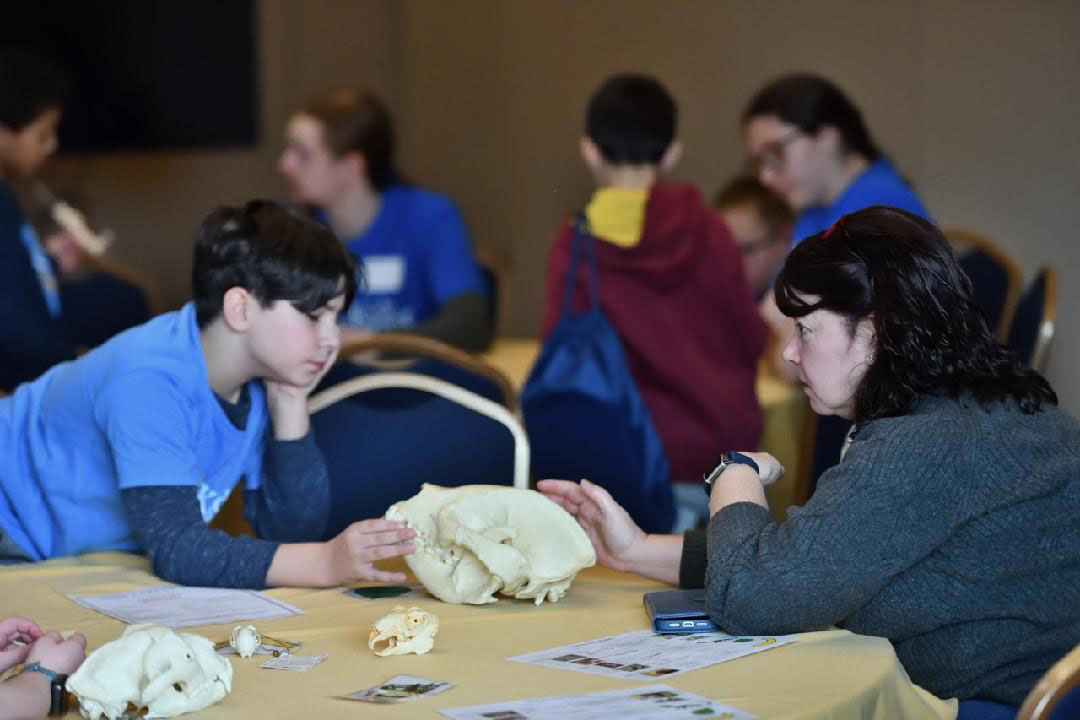
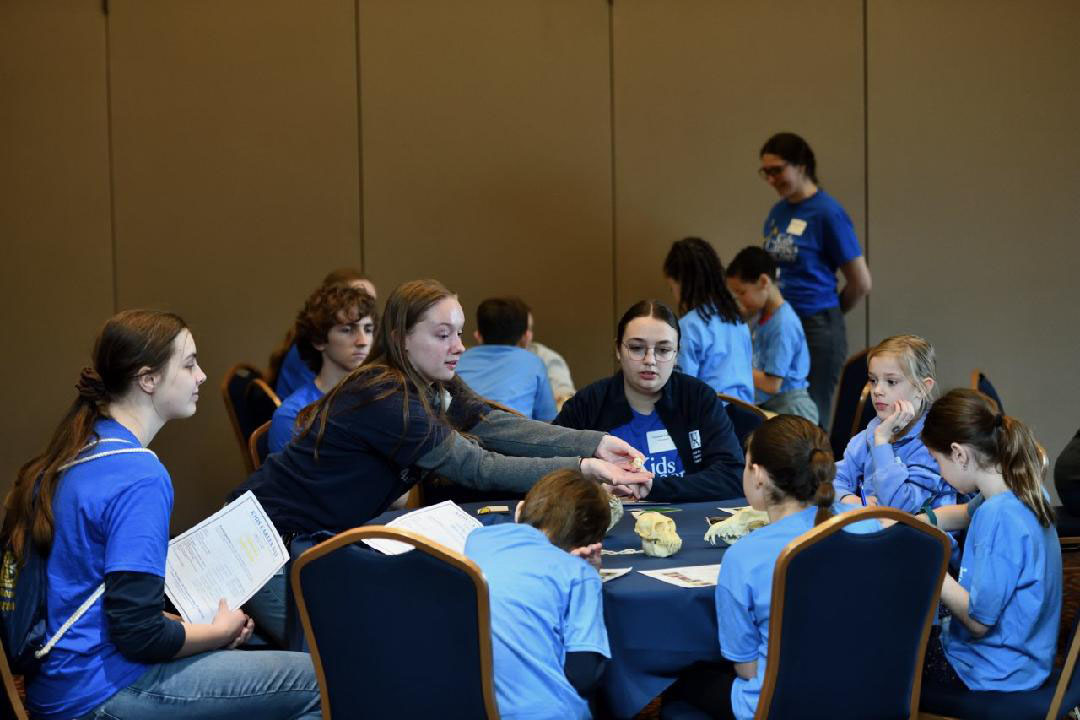
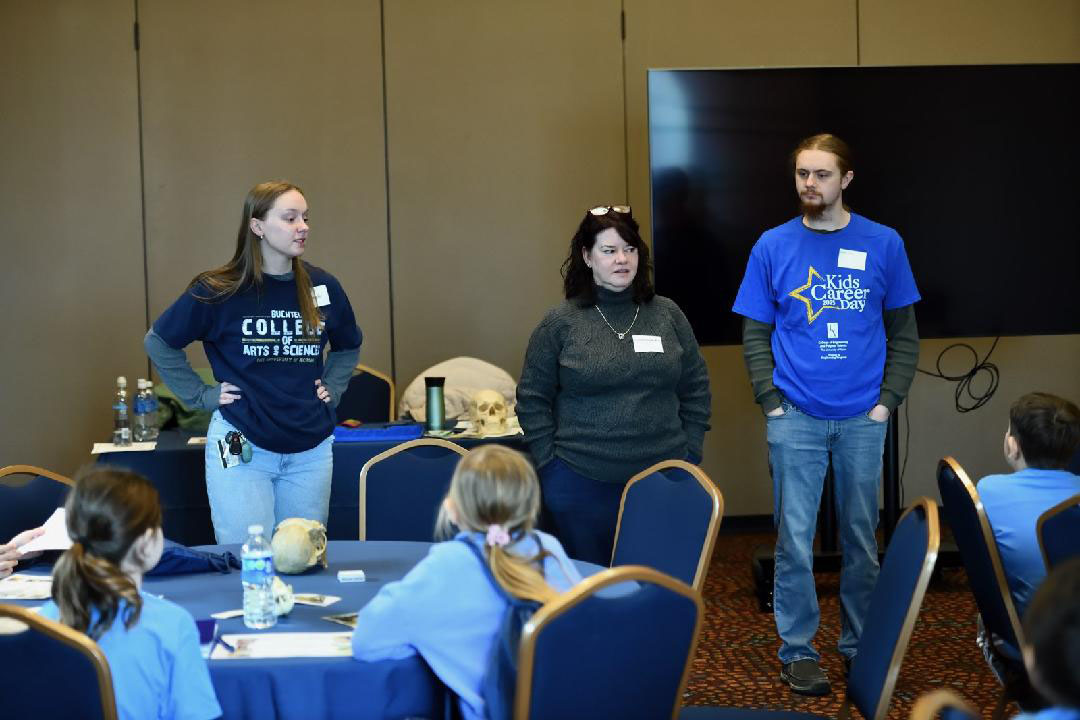
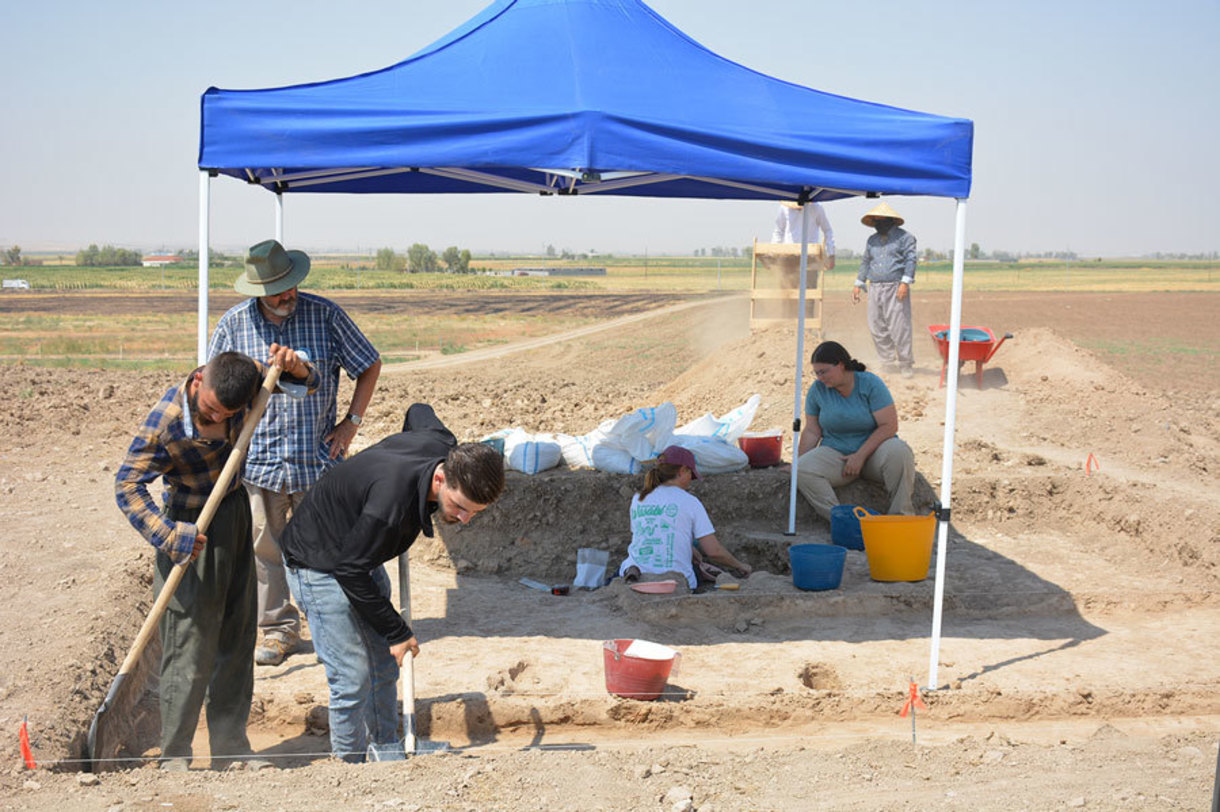
Excavations at Kharaba Tawus. Photo courtesy of Jason Ur/EPAS.
Matney launches ambitious archaeological expedition in Iraqi Kurdistan
Dr. Tim Matney, professor of anthropology, has embarked on an exciting new archaeological journey. Last month he signed a five-year agreement with the General Directorate of Antiquities and Heritage in Erbil, Iraqi Kurdistan, to lead an international team of U.S., Canadian, British, German and Iraqi archaeologists in exploring the agrarian economy of the Assyrian Empire (c. 900-600 BC).
The project, aptly named the Sebittu Project, seeks to shed light on the ancient agricultural backbone of the Assyrian Empire by excavating seven small farming villages in the vicinity of Erbil. These villages, once vital to the empire's economy, have remained underexplored from an archaeological perspective.
"The Sebittu Project has an unusual research design because, unlike traditional excavations centered on a single large city from the Iron Age, our project seeks to understand ancient life from the perspective of farmers living in seven much smaller places scattered across the Assyrian landscape almost 3,000 years ago," said Dr. Matney. "This bottom-up approach complements and fills gaps in our understanding of ancient economies, offering a unique perspective on Iron Age Assyria."
The story continues here.
________________________________________________________________
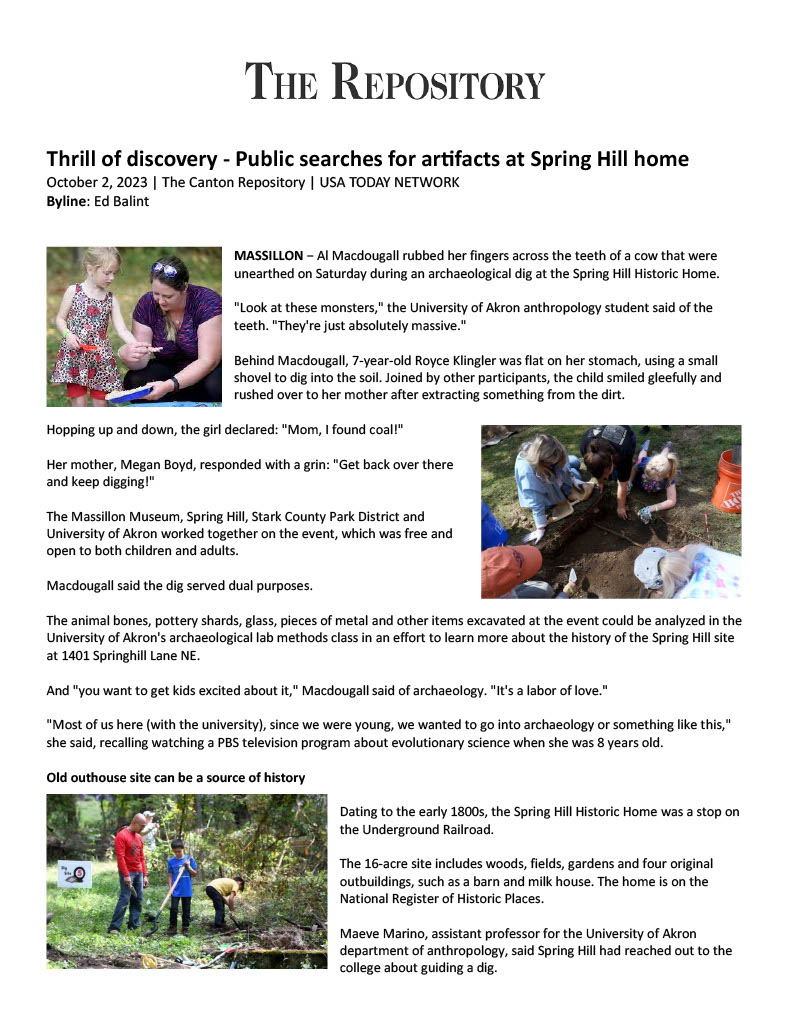
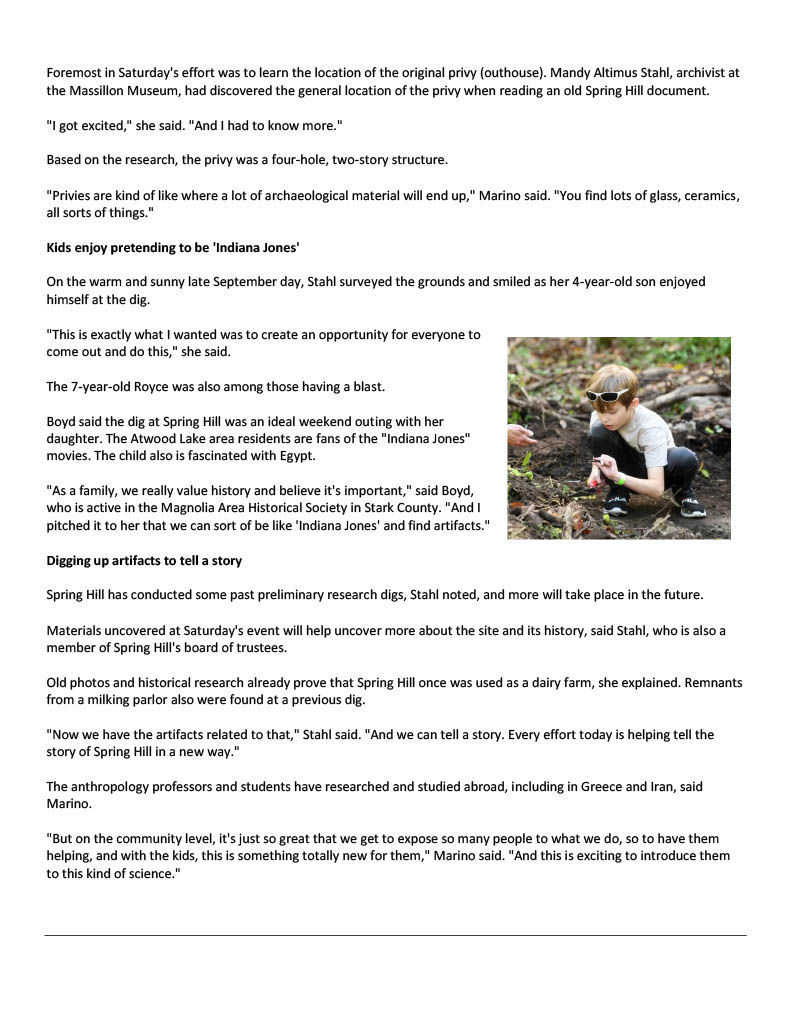 On August 20, Dr. Timothy Matney (Anthropology) signed a five-year agreement with the General Directorate of Antiquities and Heritage in Erbil, Iraqi Kurdistan, initiating a new archaeological expedition to explore the agrarian economy of the Assyrian Empire (c. 900-600 BC). Dr. Matney and an international team of US, Canadian, British, German, and Iraqi archaeologists will excavate seven small farming villages in the vicinity of Erbil, once an imperial center. Villages such as these were the agricultural backbone of a sprawling empire which once controlled the entire Middle East from modern Iran to the Mediterranean Sea and ancient Egypt. Despite their economic value, smaller sites like the ones Matney and his team are studying remain archaeologically underexplored. Their excavations run until mid-September this year and Matney is planning two-month long field seasons annually through 2027. Their work is supported by grants from UA’s Faculty Research Committee, the Wenner-Gren Foundation for Anthropological Research, and the British Institute for the Study of Iraq.
On August 20, Dr. Timothy Matney (Anthropology) signed a five-year agreement with the General Directorate of Antiquities and Heritage in Erbil, Iraqi Kurdistan, initiating a new archaeological expedition to explore the agrarian economy of the Assyrian Empire (c. 900-600 BC). Dr. Matney and an international team of US, Canadian, British, German, and Iraqi archaeologists will excavate seven small farming villages in the vicinity of Erbil, once an imperial center. Villages such as these were the agricultural backbone of a sprawling empire which once controlled the entire Middle East from modern Iran to the Mediterranean Sea and ancient Egypt. Despite their economic value, smaller sites like the ones Matney and his team are studying remain archaeologically underexplored. Their excavations run until mid-September this year and Matney is planning two-month long field seasons annually through 2027. Their work is supported by grants from UA’s Faculty Research Committee, the Wenner-Gren Foundation for Anthropological Research, and the British Institute for the Study of Iraq.
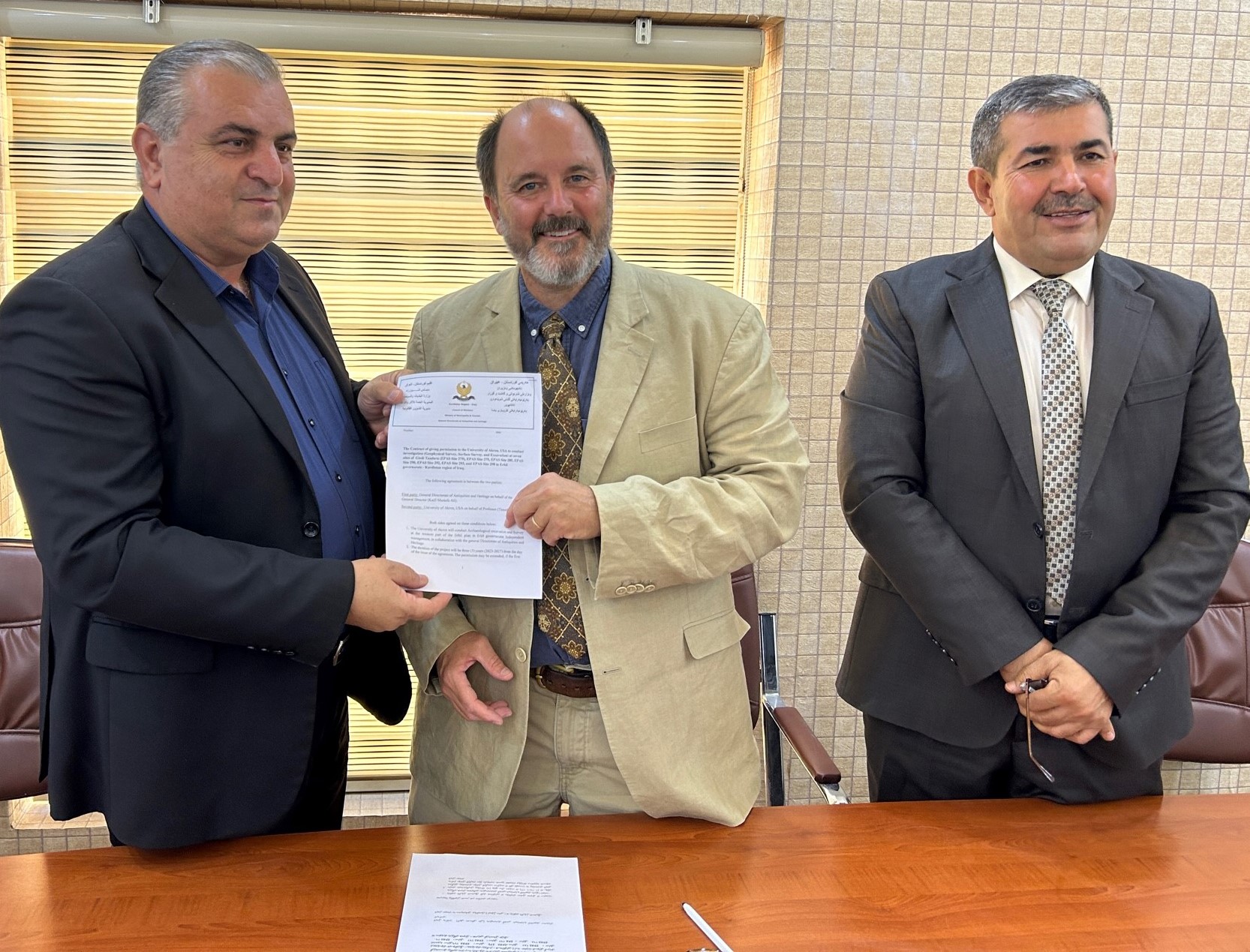
Photo caption: Dr Matney (center) participates in the formal ceremony marking the official start of the archaeological project. Nader Babakr, the Director of the Erbil Directorate of Antiquities and Heritage is on the left and Kaifi Mustafa Ali, the Director General of Antiquities and Heritage for the Kurdish Regional Government, is pictured on the right.
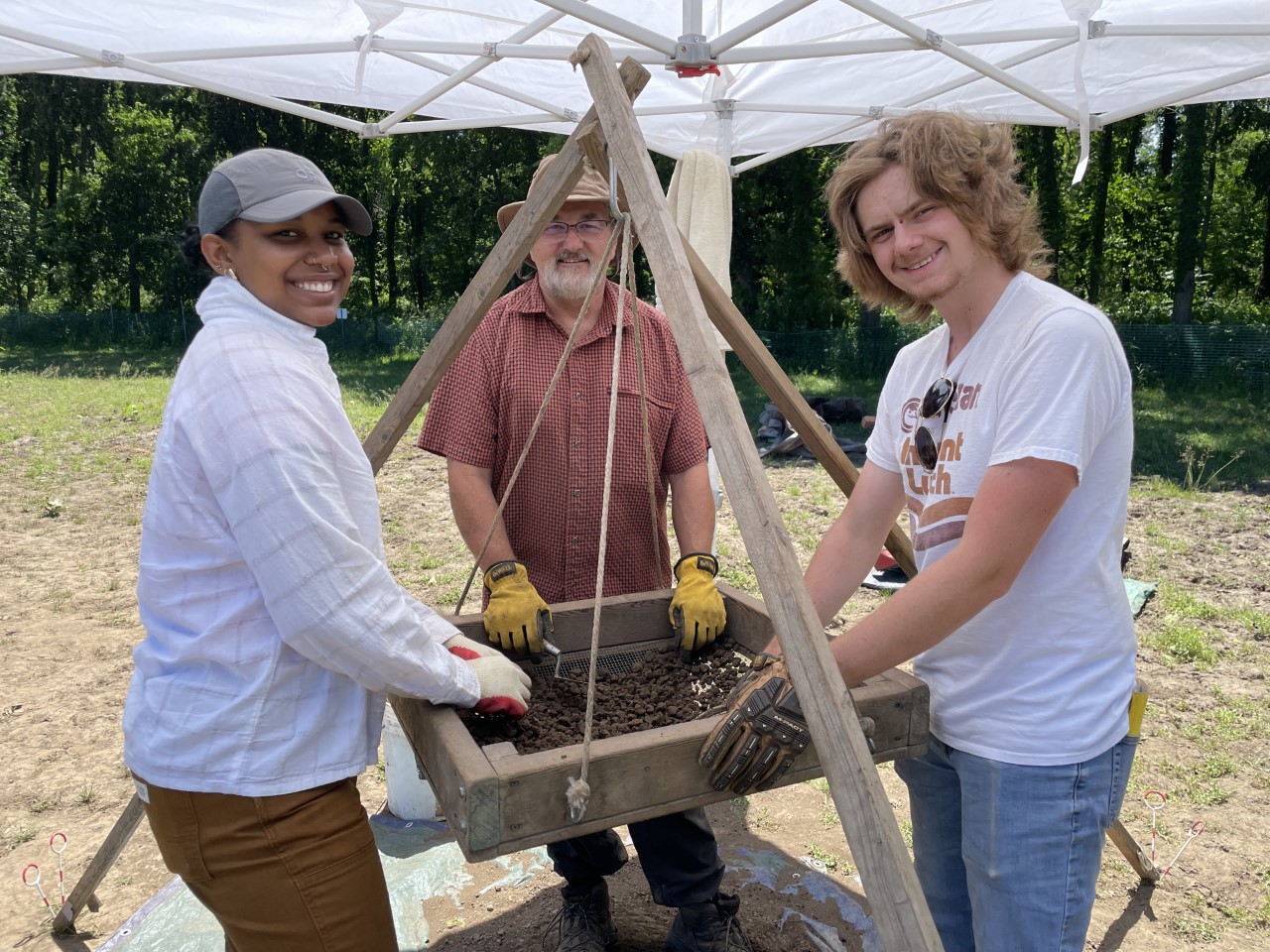
UA’s Archaeology Field School is excavating in the Cuyahoga valley. Undergraduate anthropology and geosciences students are learning basic archaeological field techniques, as well as advanced surveying, and recording methods. The location for the field school is a precontact habitation settlement dating to the Middle Woodland (Hopewell) period (c. 100 BC to AD 500). The students have recovered numerous lithic (stone) artifacts from the site. This project is part of a five-year collaborative effort to document the archaeology of the Summit MetroParks and is directed by Dr. Timothy Matney and Maeve Marino of the Department of Anthropology.
Shawn "Andrews contacted the University of Akron and consulted with faculty member Maeve Marino from the anthropology department and professor John A. Peck from the geosciences department. The historical society also is conducting research with Krista Horrocks from the Ohio Historic Preservation Office."
Mark J. Price
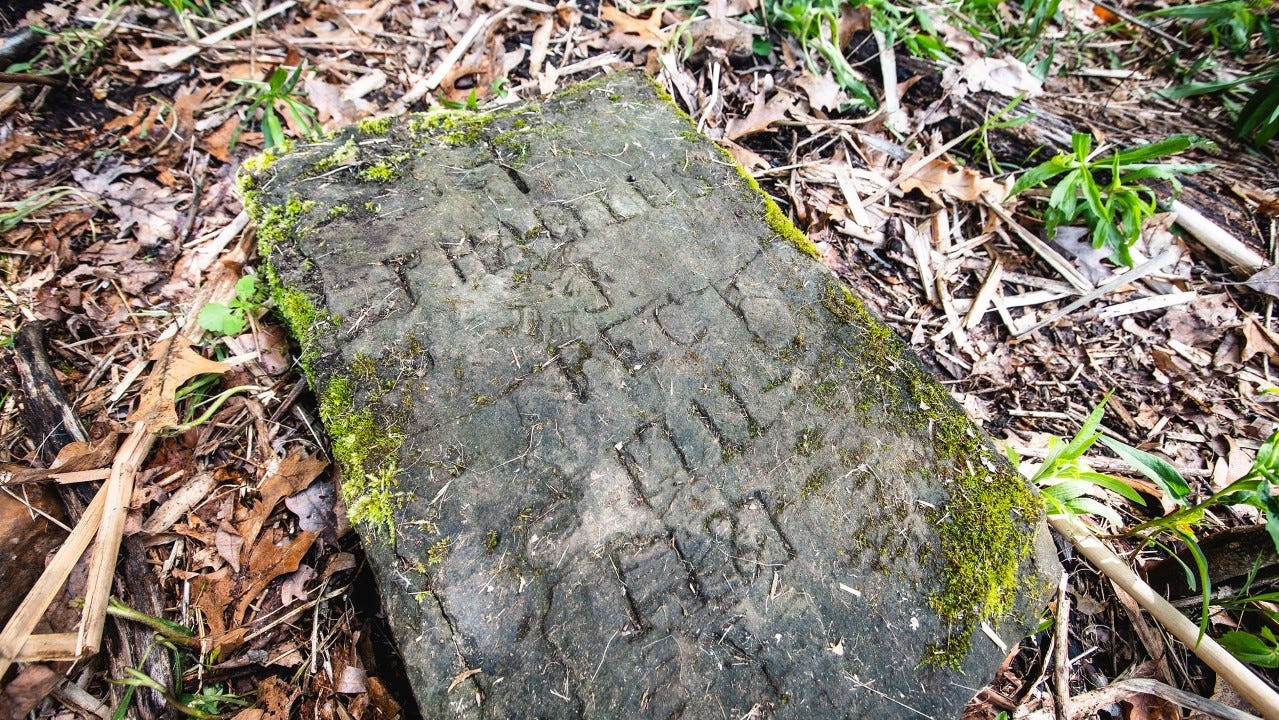
This presentation was given by Polina Vlasenko, IU alumna and Visiting Assistant Professor/Anthropology, University of Akron. It was part of the "Russia's Attack on Ukraine" Teach-In, March 3, 2022.
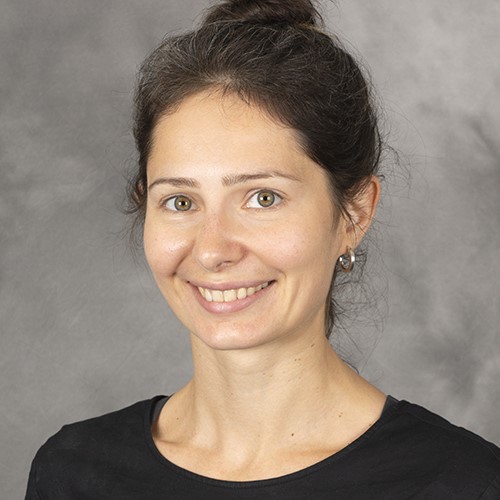
Dr. Polina Vlasenko
Dr. Elena Popa, visiting assistant professor of anthropology, presented her paper titled, "Symbolic Capital and Exclusion: A Case Study of Romanian Migrant Women in France," at the 28th International Conference of Europeanists, organized by the Council for European Studies. Visit Council for European Studies for more information about the conference and the program.
Dr. Elena Popa, visiting assistant professor of Anthropology, published an article in the Journal of Ethnic and Migration Studies. The journal is ranked number one in Demography and number one in Ethnic Studies, according to Web of Science. A copy of the article can be found here.
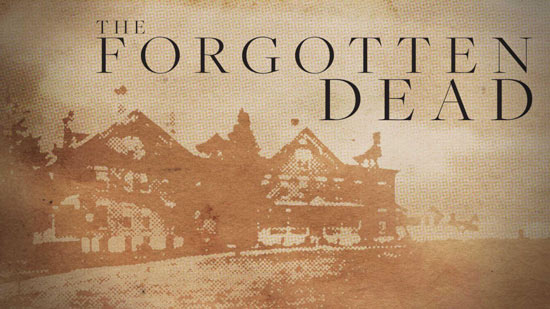
Documentary edited by UA students tells the history of unmarked graves at Akron's Schneider Park. The park’s sad, cruel history has inspires actors, writers, documentarians to revive ‘Forgotten Dead’.
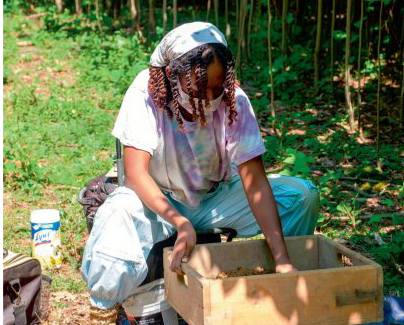
Anthropologist Heidi Larson (pictured right) leads in shifting relationships between governments, international health organizations, and people to promote understanding and use of vaccines.
Offering lessons for how anthropology helps solve problems in many contexts between people with different backgrounds and differing access to power, Larson emphasizes engagement with communities. “Building trust,” Larson says, “is an everyday action, one that requires a shift in mindset, not a whole new set of operating instructions.”
Local archaeologists including our own UA archaeology professor Timothy Matney, are working to complete a geophysical survey of the site. The site, purchased by the Summit Metro Parks in October 2016, is the former Valley View Golf Club.